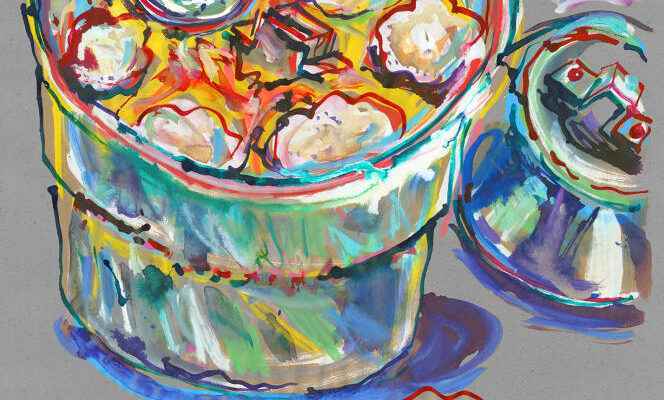His history
Present in the south of the Indian subcontinent since antiquity, the Tamil people have developed, at the same time as a language and a culture, an essentially vegetarian cuisine with distinct flavors. In the diaspora – which stretches from the Indian state of Tamil Nadu to Sri Lanka, via Mauritius, Europe and even Canada – the recipes of tiffin are among the most popular dishes. “We denote by “tiffin” a light meal that can be taken for breakfast or dinner, Explain Jody Danasse, culinary consultant from a family originally from Tamil Nadu and author ofAt the table of a Tamil family (Alternative editions). It can be steamed as well as fried preparations. »
Flagship dish of tiffin, idlis are small steamed pancakes made from fermented lentils, white rice and fenugreek seeds. Known for being highly digestible and nutritious, they are – along with dosas, chapatis and pooris – one of the staples of the Tamil diet. To make them, we use idlis moulds, a sort of steel or brass steamer.
In the lower part, a pot serves as a container for bringing a large volume of water to a boil. Attached to its edges, a series of perforated and hollowed-out trays (up to three in total) hold the dough which, when stewed, takes on the appearance of a white ball in the shape of a flying saucer. The idlis have a thick and slightly sticky texture: they should be eaten immediately or, at the latest, during the day.
Its use
This afternoon, in the small kitchen of his apartment, in Rosny-sous-Bois, Jody Danasse is making a little space to install all the equipment necessary for the preparation of idlis, according to his family recipe. On the worktop: a typical multi-blade blender, said “butterfly”, as well as a spice box containing turmeric, cumin, mustard seeds and a few curry leaves. Both are used to make rasam, this tamarind-based sauce, slightly tangy, emblematic of southern India, which is served as an accompaniment – sometimes with white yogurt – to coat or soak the steamed pancakes.
Over the stovetop, Jody fills her old idlis mold two-thirds full of water. The latter, made of dented sheet metal, was bought by his mother on a market in India more than twenty-five years ago. Once the water is boiling, the cook grabs a ladle and gradually pours her idlis mixture, prepared the day before, into each of the six receptacles provided for this purpose.
Fifteen minutes later, a delicious smell of fermented lentils fills the kitchen. With her fingertips, Jody unmolds her treasures before serving them, with rasam, in the center of a blue plate. On the palate, the paste is dense and spongy; the acidity of the sauce piques the taste buds and binds the whole. A mouthful diffused and full of flavor – like the culture of the Tamils.
